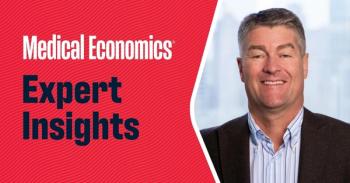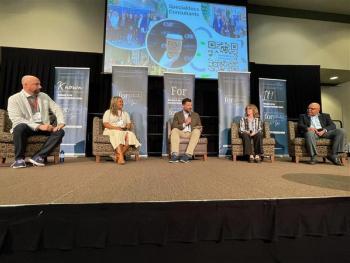
Serving patients, sleeping better
How I transitioned my family practice to concierge medicine.
Delivered and raised by a family doctor, who had also taken care of my parents and my grandparents, I was introduced to family medicine at a young age. In fact, some of my earliest memories include running through our doctor’s house trying to avoid my vaccine injections.
Perhaps this influenced my decision to become a family physician. About 30 years ago, as a newly minted M.D., I went into private practice in Morristown, New Jersey. At the time, opening a traditional private practice and accepting insurance were just the way things were done.
But after a while, I realized this model failed to give me the flexibility to spend enough time with my patients and develop the physician-patient relationships I was used to from my childhood.
I decided to try a hybrid concierge model. Some patients would pay a premium to get more “concierge” access and services — and others would continue as regular patients.
Unfortunately, this hybrid approach to concierge medicine didn’t feel quite right, either.
In fact, it felt unethical that the business forced me to offer higher-end service and amenities to some of my patients just because they were willing to pay more. It didn’t sit right with me, so I ended up offering all of my patients the same concierge level of care — even though it meant I was only sleeping four to five hours a night.
I was burning the proverbial candle at both ends, so when a corporate opportunity presented itself, I jumped on it. I thought this new position would offer me a way to slow down and have time with my patient, but I found myself once again seeing 20 to 25 patients a day. There’s just no way to adequately care for a patient in a seven-minute appointment. I was acting as a glorified triage nurse.
I wondered if I’d ever find a more sustainable way to practice — or if I should just consider retiring.
After a winding career searching for a medical model that was holistic and sustainable for both myself and my patients, I finally came across Castle Connolly Private Health Partners (CCPHP). I had been listed in Castle Connolly’s prestigious Top Doctor directory for many years, so I decided to give their affiliated concierge services a shot.
We hit it off right away. I was sold when I heard how I’d be able to practice the relationship-based medicine from my childhood, offering all of my members benefits such as same- or next-day appointments and a 24/7 connection to me. I couldn’t wait to transition to a full membership-based practice.
The CCPHP team helped make that transition easy and seamless, every step of the way.
Now that I have a smaller panel, I can spend all the time I need with each member without having to work until 9 p.m. When I feel it’s necessary, I can spend half an hour, an hour — even an hour and 15 minutes — with a member to get to the bottom of their ailments. I also have the time to research issues and ailments that are affecting my patients, which I rarely had time for in private practice or in a corporate job.
I even have the flexibility to make house calls as my childhood doctor did. (I remember a particular visit when the family doctor came over to care for my high fever). Obviously, for logistical reasons, I can’t do them every day for everybody. But a lot of my older patients can no longer drive or they’re quite ill, so I’ll travel to them. It’s time out of my day, but it’s enjoyable time because I learn more about a person from the way they live.
And Bentley, my 15-pound, hypoallergenic cockapoo, accompanies me on all of my house calls. He’s proud to help out in his role as therapy and emotional support dog.
Ultimately, my attitude toward medicine is a holistic one, consisting of body, mind and spirit. That aligns perfectly with the with the philosophy at CCPHP. Now that I’m operating in their concierge model, my members and I receive access to a variety of health and wellness resources, such as the SENS Solution Wellness Program and personalized health coaching. I’ve already participated in some of these wellness offerings, including a guided meditation class via Zoom — which allowed me to slow down and get out of my head for about five minutes.
But even with all of the amenities from CCPHP, I still run my practice as I see fit, including employing the same staff my patients have grown to know and love over the years. CCPHP is there to support us all, but, ultimately, their concierge model allows me to practice medicine the way I want.
And I can finally get some sleep at night.
Thomas S. Ziering, M.D., FAAFP, is a family physician in Morristown, New Jersey.
Newsletter
Stay informed and empowered with Medical Economics enewsletter, delivering expert insights, financial strategies, practice management tips and technology trends — tailored for today’s physicians.






